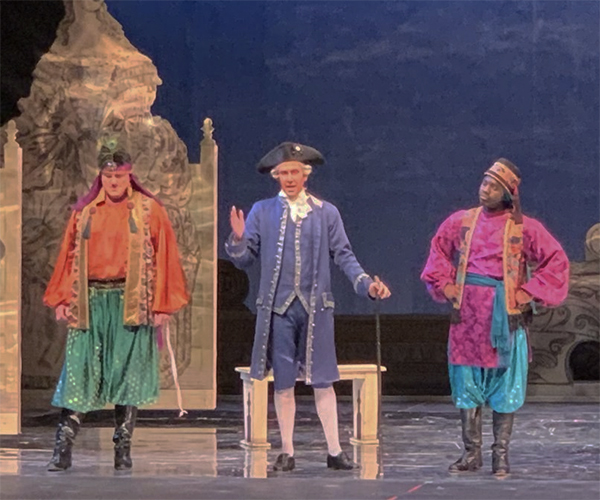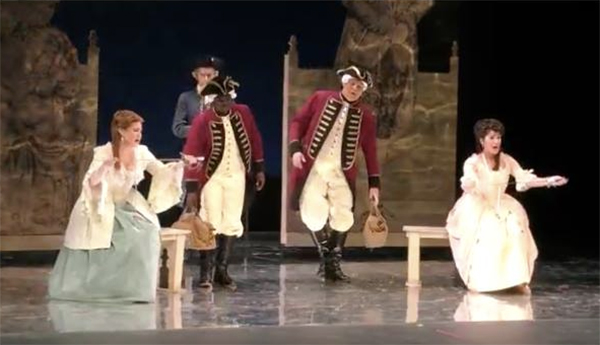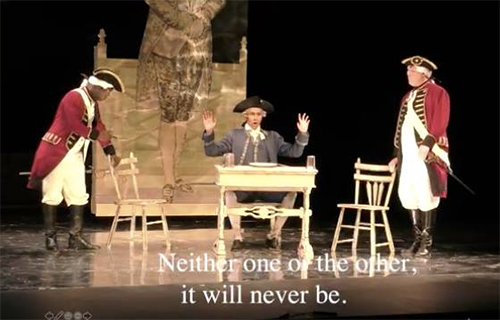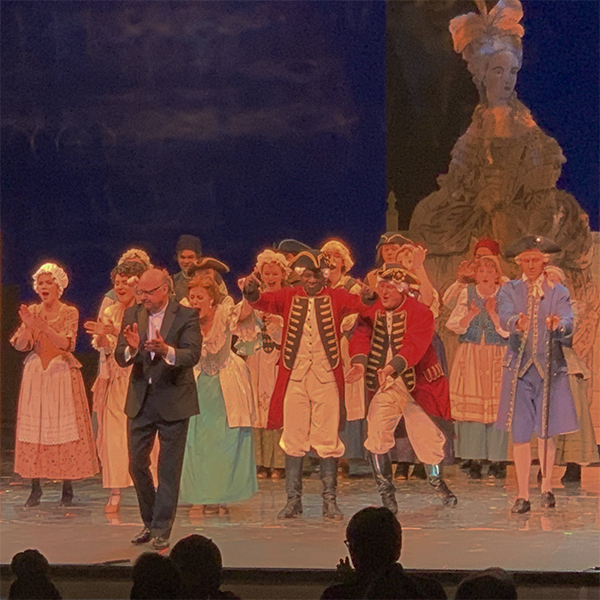by Daniel Hathaway

Finally, because all students were suddenly required to leave campus a week before spring break, the Saturday and Sunday performances of Oberlin Opera Theater’s production of Mozart’s Così fan tutte were cancelled. Luckily, the performance on Friday the 13th did take place in front of an audience restricted to 50 people — the maximum number permitted to gather at the time. It was also live-streamed, which allowed me to watch it remotely.

The technology for webcasting has improved to the point where video and audio can arrive on one’s laptop nearly simultaneously, and at very high quality. And when the production values of a feed promise to match those of a live show, watching the webcast of a performance like Oberlin Opera’s Così can be a very satisfying experience.

Balances between the pit and stage were excellent except for a brief stretch in the second act when the orchestra miking came to the fore. Musically, the coordination of singers and instrumentalists was laser-sharp, especially in passages where Mozart requires singers and orchestra to join in complicated melismas. Christopher Larkin moved the show along briskly, setting some peppy tempos that were handily executed by cast and orchestra. Camera work was smooth and subtitles linked up neatly with the stage action.
Mozart’s maids are a special category unto themselves, and Tori Adams had great fun with Despina, especially when her character impersonated the notary. Thomas Litchev made a characterful Don Alfonso. The 11-member chorus gave a distinct lift to the crowd scenes.

Oberlin’s first attempt at streaming opera was such a hit that the Conservatory should consider making this method of distribution a regular feature of its productions. Bravos all around to the cast and production team for turning a problem into an opportunity.
Published on ClevelandClassical.com March 24, 2020.
Click here for a printable copy of this article



